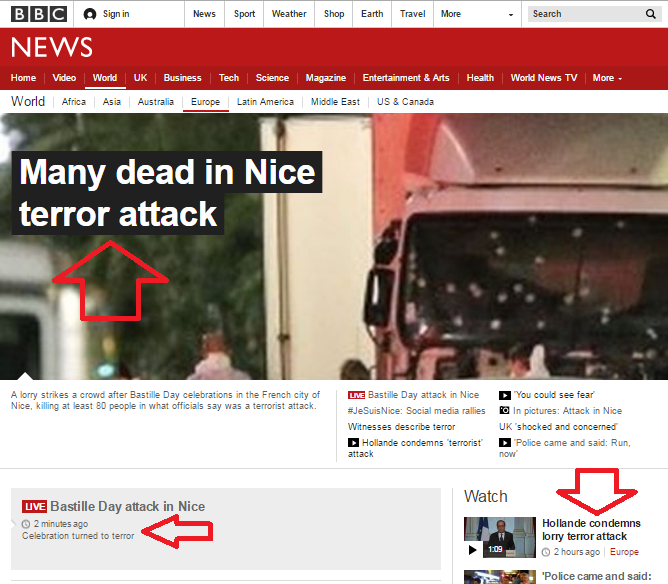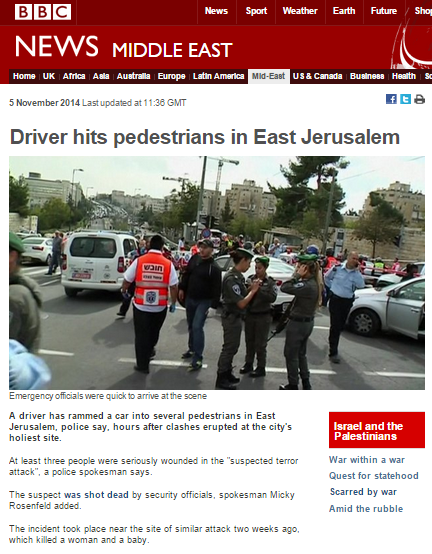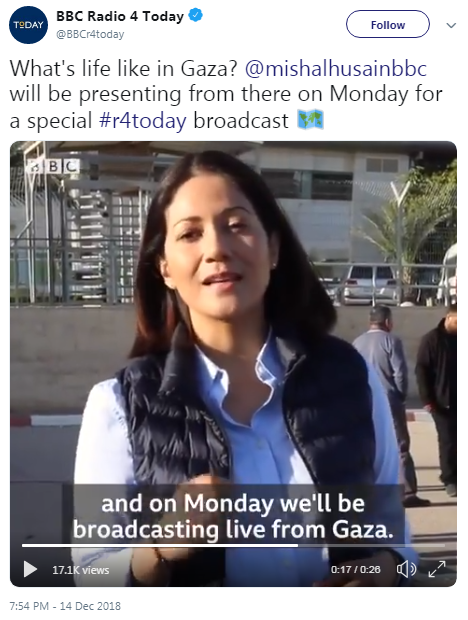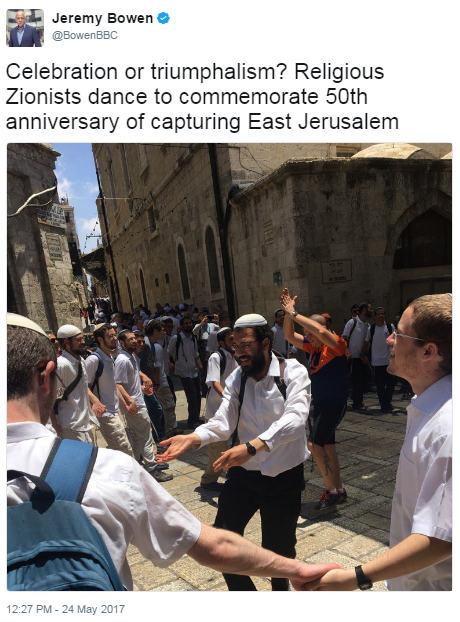Citing “well-placed BBC sources”, the Daily Mail recently reported that the BBC intends to place “an effective ban on journalists using the word ‘terror’”.
“Reporters will be told to avoid using the word to describe any terror attack, unless they are quoting someone else.
Instead, they will refer to terror attacks by naming specific details, such as the location and the method of slaughter used.”
The article went on:
“But yesterday, MPs and experts accused the broadcaster of ‘failing in its public service duty’.
David Green, a former Home Office adviser and chief executive of the think tank Civitas, said: ‘If they don’t want to use that [the word terror] then they’re failing in their public service duty which is to be clear and accurate. […]
Conservative MP Andrew Bridgen said: ‘They are terrorists and these are terror attacks. The BBC should not try to sanitise the behaviour of terrorists by not calling it out.’”
Readers were also told that:
“Many BBC reporters are angered by the decision, which will come into force when the BBC’s new editorial guidelines are published this month.
A source said: ‘The end result is a desire to squeeze the word terror out altogether, which many people think is nuts.’”
The Daily Mail noted that:
“According to well-placed BBC sources, bosses are eager to report terror attacks consistently, regardless of the terrorists’ political ideology. But instead of branding them all as terror attacks and risk accusations of bias, it wants to avoid the word altogether.
A senior news source said: ‘It boils down to that phrase, ‘One man’s terrorist is another man’s freedom fighter’.”
And:
“A BBC spokesman said: ‘People should wait to read the editorial guidelines.’”
Last autumn the BBC announced a public consultation on those proposed new editorial guidelines. The section of the new guidelines concerning ‘War,Terror and Emergencies’ – ‘use of language’ includes the following:
Section 11.3.5:
“Our reporting of possible acts of terror should be timely and responsible, bearing in mind our requirement for due accuracy and impartiality. Terrorism is a difficult and emotive subject with significant political overtones and care is required in the use of language that carries value judgements. We try to avoid the use of the term ‘terrorist’ without attribution. When we do use the term we should strive to do so with consistency in the stories we report across all our services and in a way that does not undermine our reputation for objectivity and accuracy.”
Section 11.3.6:
“The word ‘terrorist’ itself can be a barrier rather than an aid to understanding. We should convey to our audience the full consequences of the act by describing what happened. We should use words which specifically describe the perpetrator such as ‘bomber’, ‘attacker’, ‘gunman’, ‘kidnapper’, ‘insurgent’ and ‘militant’. We should not adopt other people’s language as our own; our responsibility is to remain objective and report in ways that enable our audiences to make their own assessments about who is doing what to whom.”
That approach is of course already evident in the existing BBC editorial guidelines – ironically titled “Terrorism: Language when Reporting Terrorism” – as BBC Watch pointed out in our submission to that consultation:
“This does not differ from existing editorial guidelines which have repeatedly been shown to be redundant. The BBC regularly does use the words terror, terrorist and terrorism when reporting on incidents in specific geographic areas – particularly Europe and the UK – or when British nationals are among the victims and indeed it would be ridiculous not to do so.
However, the BBC never uses the words terror, terrorism or terrorist (except in direct quotes from Israeli officials) when reporting similar attacks perpetrated against Israelis.
The responses received from the BBC when that issue has been raised by members of the public have been highly unsatisfactory.
Moreover, the BBC has used the term terrorist when reporting attacks by Jews on Palestinians.
These double standards are highly offensive and their roots are clearly to be found in political judgments of the kind the editorial guideline professes to seek to avoid. At present the BBC’s approach to the topic of terrorism does not distinguish between method and aims, means and ends. The result of that is that when a perceived cause is considered acceptable and justifiable, the description of the act is adjusted accordingly.
It is obviously futile to reuse the same editorial guidelines which BBC journalists have been openly – and rightly – breaching for years in reports on terrorism in Europe and the UK. The issue of continuity in reporting acts of terror wherever they occur is clearly a major point which this draft guideline does not adequately address.”
If the Daily Mail’s report is accurate, however, it would appear that rather than addressing the core issue of that ‘one man’s terrorist’ myth – i.e. distinguishing between means and aims – the BBC is about to damage its reputation for accuracy and impartiality even further by expanding the policy it already uses when reporting Palestinian attacks against Israelis to include other locations too.
Related Articles:
Radio 4 gives insight into BBC avoidance of the use of the term ‘terror’ in Israel
BBC News website does ‘one man’s terrorist’




